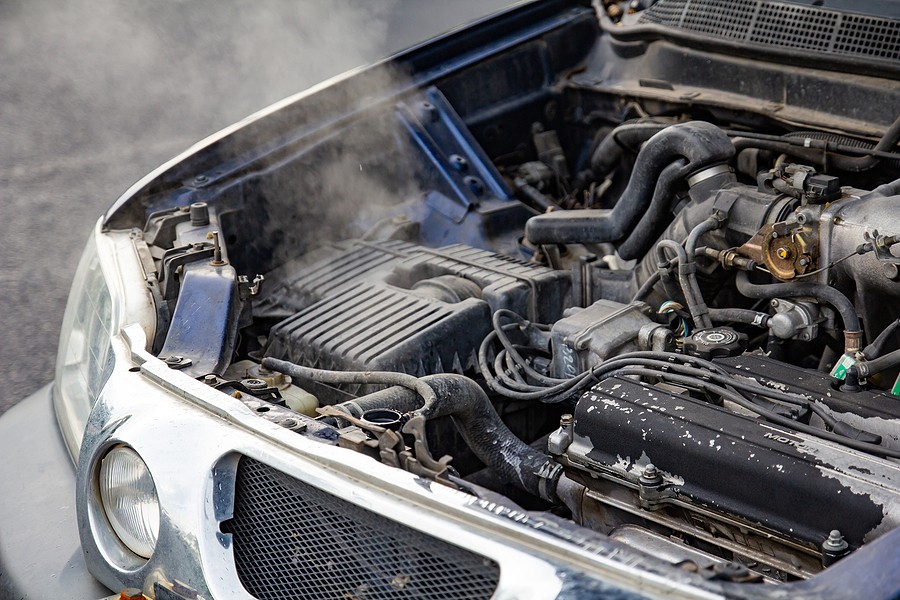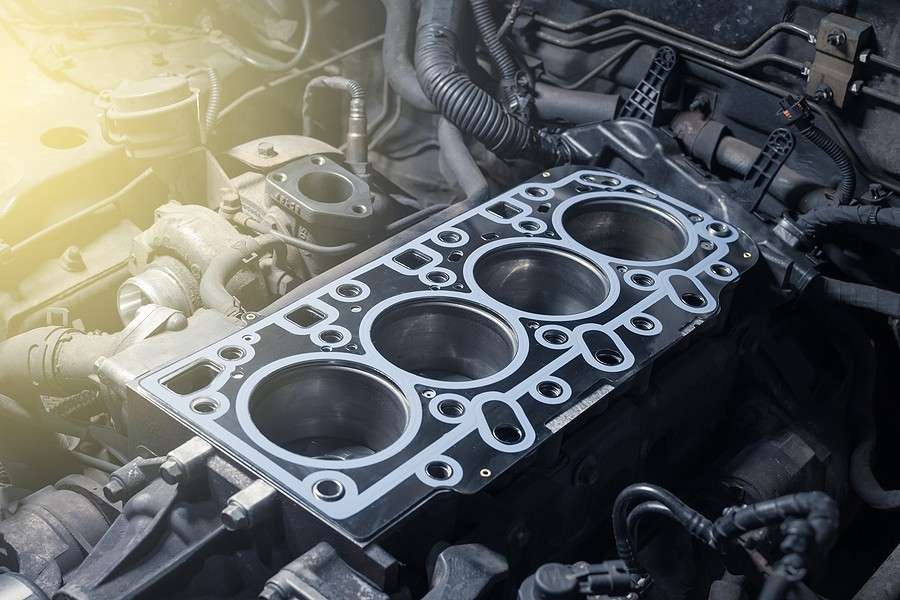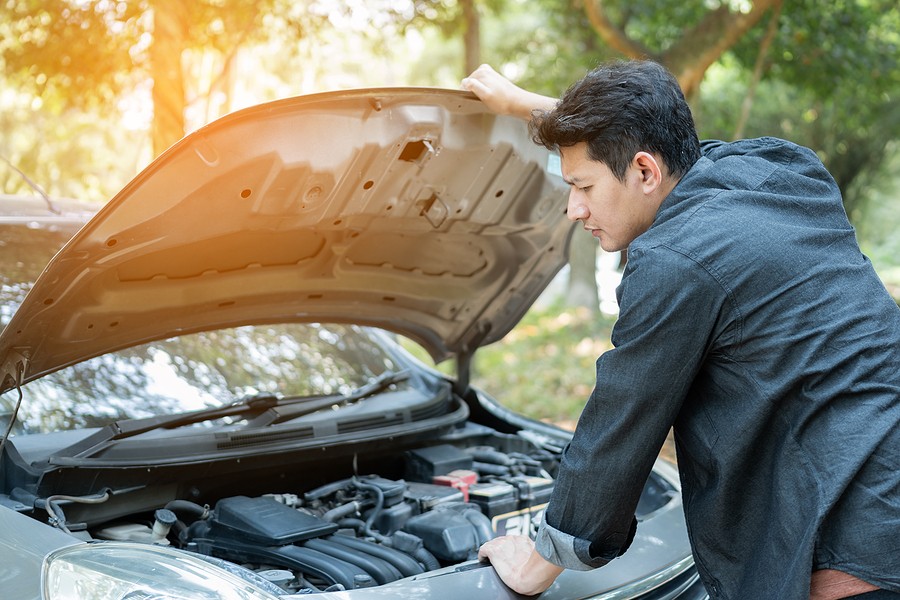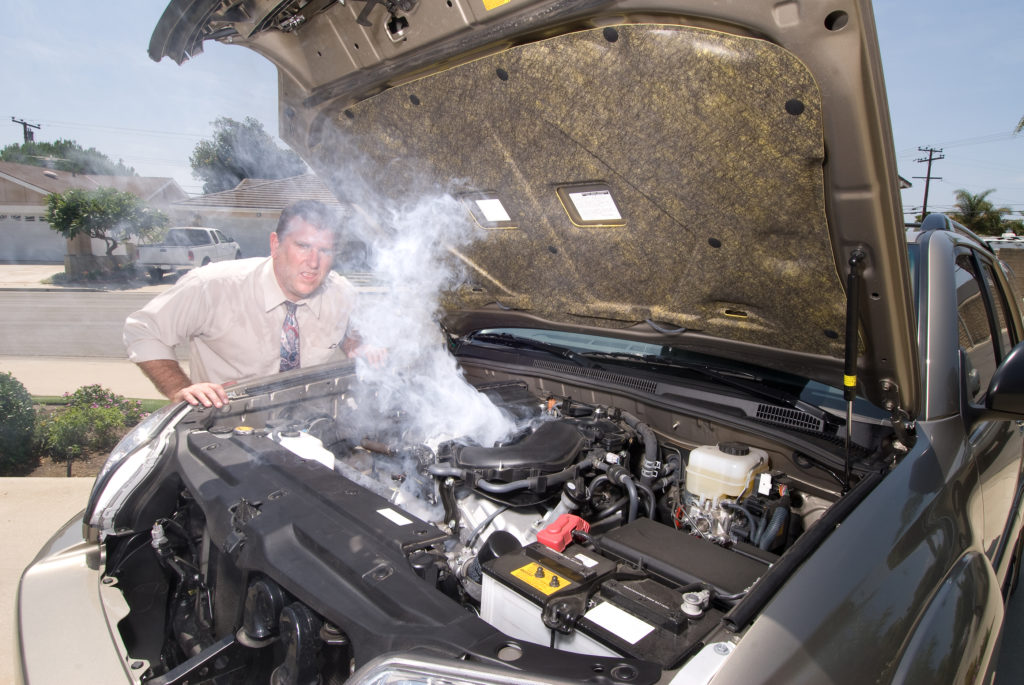If you're wondering, “how to know if the engine is overheating,” below are the six most common symptoms:
- High-temperature gauge reading
- Smoke is coming out of the hood
- Burning smell
- Reduce engine performance
- Coolant leak
- Ticking sound
The engine is a core component in any vehicle; when it fails, it can simply mean the vehicle is no longer working. That's why every driver must maintain a good and healthy engine and avoid any potential problems that could damage your engine significantly.
While some minor problems could impact your engine, some of the problems that might not sound very serious to many drivers could be killing and might result in damaging your engine in no time.
Engine overheating is one of the very critical problems that many inexperienced drivers do not fully know what it could do to the engine. It can result in self-destructing your engine in no time, so you must keep up with any symptoms indicating engine overheating and try to understand as soon as possible.
This article highlights the six most common symptoms indicating that your engine is overheating; it also provides recommendations about avoiding engine overheating in the future and what to do if it happens to you.
How to know if the engine is overheating? 6 Symptoms
Since engine overheating is a critical problem that could kill the engine in no time, it is very important for you as a car owner to understand what to look for when checking if the engine is overheating.
Automotive experts put together the most common symptoms indicating that your engine is overheating. While there are tons of them, the following list provides you with the six most important ones:
1- High-temperature gauge reading
The first and most common symptom indicating that your engine is overheating is when you look at the temperature gauge on the dashboard and realize that it's reading very high. This gauge is responsible for monitoring the engine temperature and keeping continuous communication between you and the engine to avoid dealing with significant engine overheating.
As a driver, you must keep an eye on this gauge and never ignore it when it reads very high. You'll notice that the gauge keeps reading very high and continuously increasing none, stopping when the engine is overheating. If that happens, you must act immediately to avoid further complications.
2- Smoke coming out of the hood
In some severe scenarios, your engine might get to the point where it starts producing smoke and steam, and you'll see them coming out of the hood. This is a very serious situation; You should immediately follow some of the recommendations highlighted in the following section about what must be done when the engine is overheating.
Hopefully, as a responsible car owner, you don't need to deal with this because you'll see all the other symptoms indicating that your range is starting to overheat before you get to this point. And fortunately, once you are at this point, problems might most likely get to the worst scenarios.
3- Burning smell
Another important symptom you'll notice when asking “how to know if the engine is overheating” is the burning smell. This smell will come mostly from the engine location in other areas.
Seriously, you never ignore this problem; it acts immediately by discussing it with your mechanic and seeing what needs to be done. In some instances, you can't even continue driving the car if the problem rises and worsens.
In general, automotive experts never recommend that you ignore any smells coming out of the car, whether there are good or bad smells or whether they are coming from the engine or other components.
These smells could indicate an internal problem that needs immediate attention. Otherwise, delaying this and never focusing on it leads to further complicated problems that could cost you thousands of dollars in repair.

4- Reduce engine performance
When the engine is overheating, it's stressed out, which will translate into its performance. You'll typically notice that the engine is not operating the way it should appear. In other words, you'll significantly reduce engine performance, especially with the severe overheatingmber. When dealing with a reduction in engine performance, it doesn't suddenly mean it's overheating. In other words, you must find other symptoms confirming that you're dealing with engine overheating to confirm the issue.
5- Coolant leak
In general, engine overheating is always linked to coolant leaks in more scenarios. Therefore, look underneath the vehicle and see if you can see some drops of fluid on the floor, especially underneath the coolant reservoir or the connections.
Coolant leak is not good, and if it's very severe and results in puddles of columns underneath the car, you might need to stop driving your vehicle immediately, and you cannot move it a single inch to avoid dealing with costly complications.
6- Ticking sound
Finally, an overheating engine might result in ticking noises from the engine compartment. When this happens, you have to look at that temperature gauge and the other components to see if you're dealing with engine overheating.
The faster you detect the problem, the easier it is to resolve it and avoid costly repairs you do not necessarily need to deal with.

What to do if the engine is overheating?
In some scenarios, you might notice your engine continuously overheating and getting to a serious point where you're looking at the hood and seeing all these steams and smokes coming up from underneath it. What are you going to do?!
Your actions are critical and can determine whether you can continue having your vehicle or lose the engine completely. And general, experts recommend the followings when dealing with engine overheating:
· Turn off the AC and turn on the heater
· Pull over in a safe area
· Turn off the vehicle and check the coolant level
· Reach out to professionals

How to prevent engine overheating?
As you notice, engine overheating is not a cool problem. It is critical and can easily lead to many issues that could make your driving experience very frustrating and stressful. Therefore, it is critical also for you as a driver to understand what needs to be done to prevent engine overheating in the first place.
The following list provided by automotive experts could help you reduce or delay engine overheating at premature stages in your engines lifetime:
· Check the coolant level regularly
Since the Coolant is the typical, most responsible fluid for any engine overheating issues, it is always important that you keep up and maintain good coolant quantity and quality.
You can review your vehicles owners manual to check how often you have to check on the comments and how many columns to have in the vehicle. Sometimes your manual might recommend flushing the system completely and replacing the Coolant with a higher-quality one.
· Inspect the cooling system components
In addition to checking the coolants, you must look at the entire cooling system. There might be a small problem with any hoses or pipes connecting the Coolant from one location to another; therefore, you have to replace them when they go bad.
· Replace any faulty components in the cooling system
Suppose you confirm that there is any faulty component within your cooling system. In that case, you must replace it as soon as possible because the more you delay it, the harder the problems get and the more complicated the required repair costs are.
· Keep up with the regular maintenance
Finally, you must maintain regular maintenance regarding your vehicle's cooling system and other systems to maintain the engine, enjoy a longer lifespan, and avoid further damage.

How to know if the engine is overheating? Final Thoughts
Engine overheating is a very common problem that any driver might deal with at any point of time during the vehicle's lifespan. Therefore, all drivers must understand what to look for when asking themselves, “How to know if the engine is overheating?”
This article highlighted six main symptoms that could indicate an overheating engine, including the high-temperature gauge, the steam coming out of the hood, the coolant leak, and others.
Suppose your vehicle is suffering from a real engine overheating. In that case, you must be proactive about the problem and pull over whenever you can in a safe place to turn off the vehicle before reaching out to help.
If you're interested in similar posts, we highly encourage you to visit our blog by clicking here!



